Below is a viewpoint from the Foresight Africa 2023 report, which explores top priorities for the region in the coming year. Read the full chapter on gender.
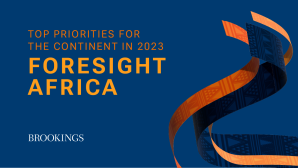 Despite persisting gender gaps, women across Africa continue to play critical roles in their communities. Yet, many women do not have equitable access to justice and leadership positions. Expanding access to justice for women across Africa and achieving sustainable and equitable access to justice for women requires collective action and the inclusion of all actors—governments, civil society, women, and men. This collective action is anchored in an African proverb, “If you want to go fast, go alone; if you want to go far, go together.” Thus, in order to address the widening gender inequality gap across the continent, African governments must act fast, but they can only go far if they bring women on board. Centering the voices and agency of African women in decisionmaking is key to achieving gender equality and expanding women’s access to justice.
Despite persisting gender gaps, women across Africa continue to play critical roles in their communities. Yet, many women do not have equitable access to justice and leadership positions. Expanding access to justice for women across Africa and achieving sustainable and equitable access to justice for women requires collective action and the inclusion of all actors—governments, civil society, women, and men. This collective action is anchored in an African proverb, “If you want to go fast, go alone; if you want to go far, go together.” Thus, in order to address the widening gender inequality gap across the continent, African governments must act fast, but they can only go far if they bring women on board. Centering the voices and agency of African women in decisionmaking is key to achieving gender equality and expanding women’s access to justice.
In the early phases of the movements towards independence in Africa, some visionary leaders knew that the political development of the continent was closely linked to women’s active and equal participation. In a famous phrase, the former president of Burkina Faso Thomas Sankara noted that; “The revolution and women’s liberation go together. We do not talk of women’s emancipation as an act of charity or out of a surge of human compassion. It is a basic necessity for the revolution to triumph.” However, the early post-independence era, which soon cascaded into military dictatorships, eroded many hopes of women’s active and equal participation in governance structures. Patriarchal norms and processes inherited from the colonial administrations were institutionalized as the modus operandi for African bureaucratic and judicial systems. Today, notwithstanding the fact that women make up an estimated 50 percent of the continent’s population, women continue to be underrepresented in leadership positions from the community level to the executive, legislature, judiciaries, diplomatic, and public service. Women and girls are often found in the most marginalized groups because systems of intersectional oppression converge to deprive these groups of their basic social, economic, political, and legal rights.
Women and girls are often found in the most marginalized groups because systems of intersectional oppression converge to deprive these groups of their basic social, economic, political, and legal rights.
Expanding access to justice for women requires institutional mechanisms that provide equitable opportunities for women and girls to seek and receive justice. However, tools to promote open, transparent, and timely access to justice remain elusive for many African women and girls. According to the 2022 World Bank Women, Business and the Law report, billions of women worldwide lack access to their fundamental rights. The COVID-19 pandemic has set back women’s rights. A sobering report by the World Economic Forum indicates it will take 132 years to close the gender equity gap. For women across sub-Saharan Africa, a 2019 Mckinsey report projects it will take an alarming 140 years to close the gender gap. Girls are the women of tomorrow, and if their well-being is not prioritized, the continent of Africa is set for an impending tsunami of disastrous development challenges across all sectors.
But there is hope—only if governments, civil society actors, and funding bodies act with calculated expediency to address the widening gender equity gap. A commitment to not leaving behind women and girls requires that all efforts to address these challenges are handled simultaneously with gender-responsive intentionality. Women’s voices must be heard in the decisions that affect their livelihoods, reproductive health, personal safety, and the right to leadership positions.
What can governments across Africa do to change the tide of this impending doom for more than half of their populations? First, African leaders must prioritize gender-responsive policies that empower young girls and women through the provision of economic, educational, and health opportunities.
Second, to prioritize women’s access to justice, African governments must move from “politics as usual” and be intentional in bringing women into the rooms where decisions are made about women’s lives and develop gender-responsive policies that are inclusive and sustainable.
Third, African governments must invest capital in enforcing their commitments to the Maputo Protocol, CEDAW, and other international treaties that seek to advance women’s rights. The African Union must adopt the new wave of feminist foreign policies to promote a continent-wide shift towards prioritizing the rights of women and girls.
Women cannot wait 132 years for the gender gap to close. The disastrous implications of climate change will burden African women disproportionately, leading to mass migrations, food scarcity and heightened human insecurity. Political backlash leading to conflicts will have dire consequences for the security of women and girls. Technological advancements and the use of artificial intelligence leading to increased cyber harassment and bullying will disproportionately affect women and girls. Access to justice for women and girls is necessary for their existence and must therefore be prioritized by African governments.
The Brookings Institution is committed to quality, independence, and impact.
We are supported by a diverse array of funders. In line with our values and policies, each Brookings publication represents the sole views of its author(s).
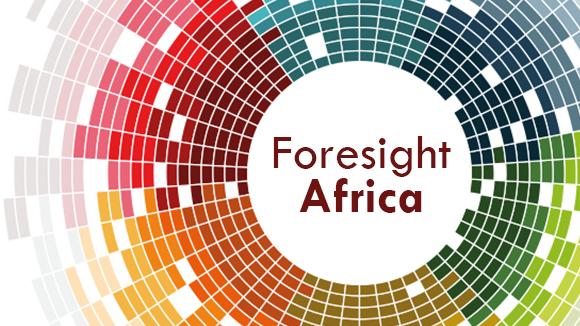

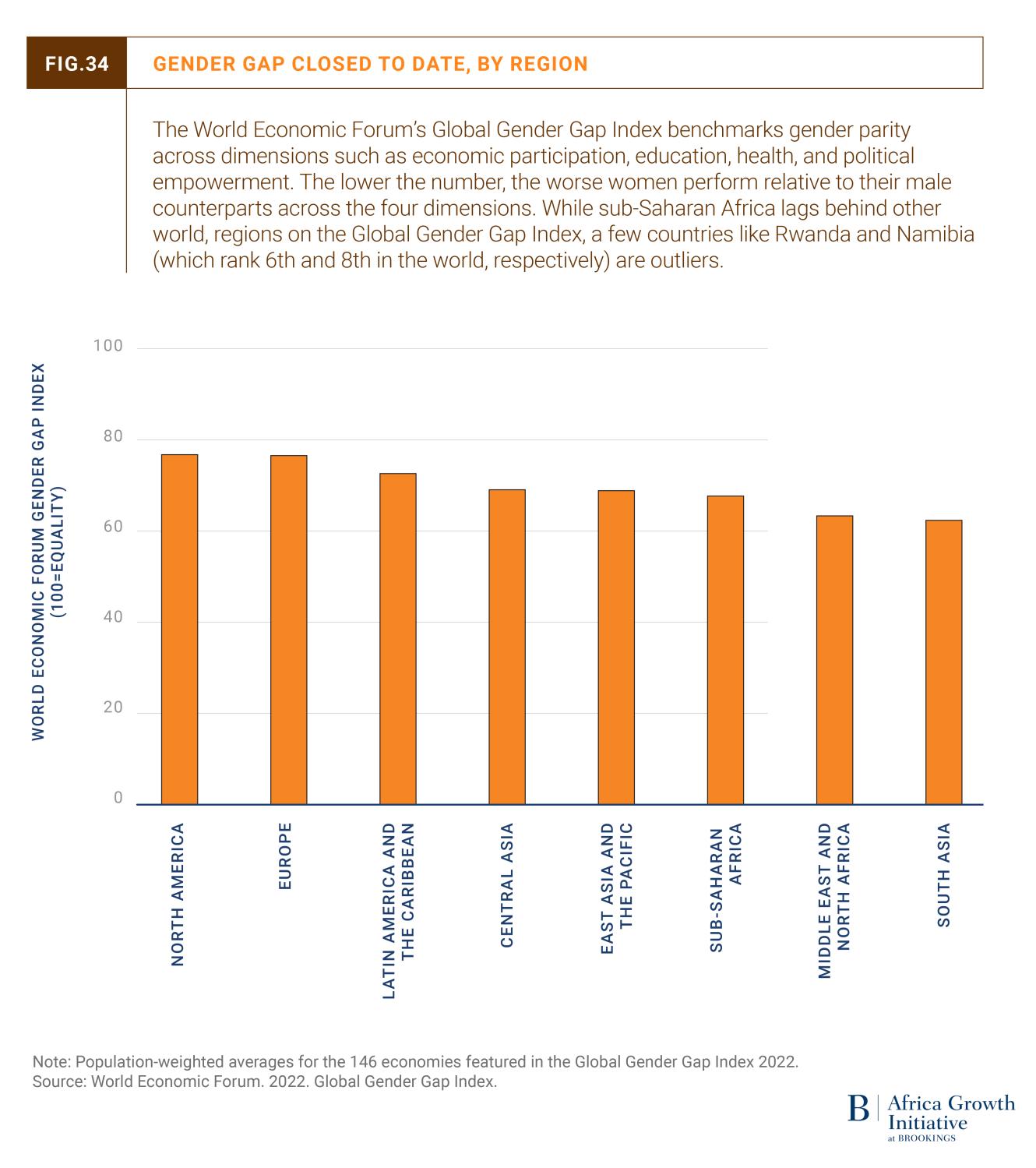
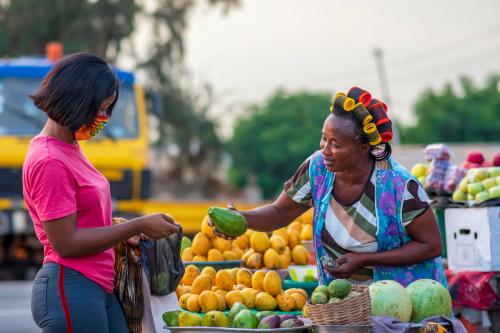
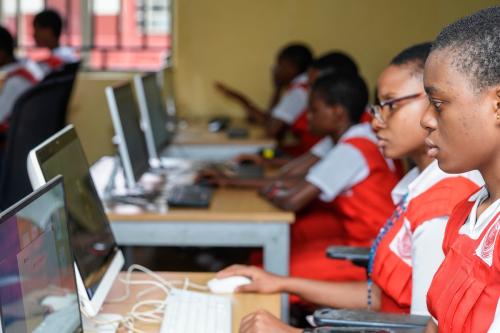
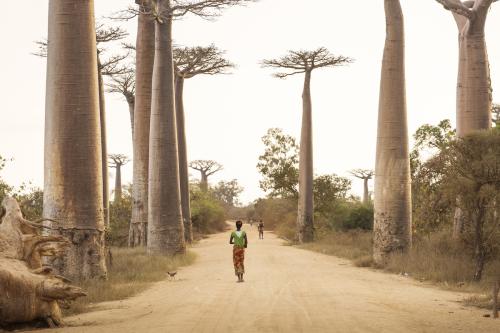



Commentary
Women and access to justice in Africa: Women cannot wait another 100 years
August 29, 2023